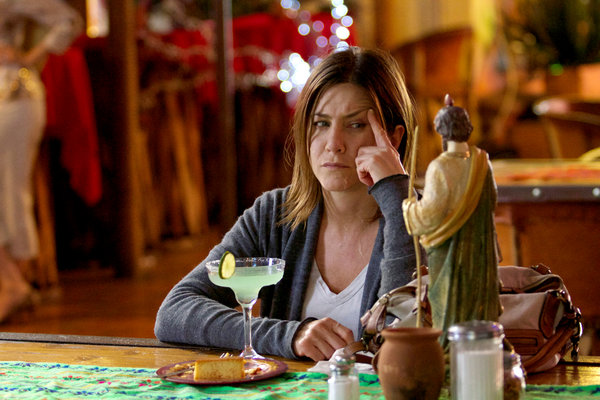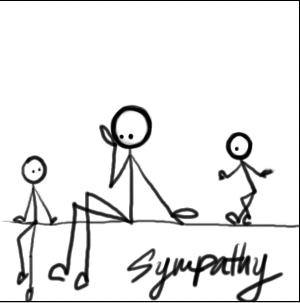When pain is to be born, a little courage helps more than much knowledge, a little human sympathy more than much courage, and the least tincture of the love of God more than all.—C.S. Lewis, The Problem of Pain
My husband and I just finished a marathon. No, we didn’t physically run 26+ miles. We just feel like we did. Holy Week and Pascha weekend in the Orthodox Church feels like a marathon if you attend many of the twelve (yes!) services—several of which are 2-3 hours long. The Paschal service itself starts at 11 p.m. on Saturday night and goes until around 1:30 a.m., after which we share a wonderful time of feasting together for a couple more hours. The next afternoon we come back together for Agape Vespers and a picnic and egg hunt. Sharing notes with other baby boomers at the end of the marathon this year, I found a common (physical) thread: we’re exhausted and we’re in pain. Our backs hurt. Our feet hurt. As with a real marathon, it will take a while to recover.
And then there are those of us who were already in pain before the marathon began. Data from the April 2014 U.S. Census Bureau show that there are 76.4 million baby boomers. Conversations at cocktail parties and other social events for our generation seem to circle around physical ailments more and more. Who just had a knee replacement? Who’s having a total hip? What’s helping with the pain?
I recently read a blog post by Sami Jankins about the movie, “Cake,” starring Jennifer Anniston. Jankins wrote about the movie because like 100 million Americans (yes) she suffers from chronic pain. In her post, “The Reality of Chronic Pain is Different From the Movies,” she says:
We are all one bad fall, one car accident, one bodily breakdown from living within a place that is largely unimaginable to those who aren’t there. In reflecting on this, I realized that perhaps part of the myopic narrative surrounding Cake’s content is that there really are no other recent films that tackle the topic of someone suffering from chronic pain; when things are unfamiliar, it’s easier to lack understanding.

The rest of her post is really good—she goes on to share stories of several friends who have chronic pain, and to discuss the way the media made the movie out to be all about addiction to drugs, rather than facing the bigger issue of the pain that sometimes pushes people to overuse pain medications.
I already had chronic pain before my car wreck in July of 2013—mostly from arthritis. The trauma aggravated my arthritis, so I’ll just have to live with a higher degree of pain now. And the stiffness in my neck and tenderness and pain in my foot and ankle are daily reminders that yes, I’m lucky to be alive and able to walk. I don’t always respond to the pain with thankfulness. Sometimes I get cranky. I don’t use pain meds, but sometimes I use alcohol or food to numb the pain. Neither works, of course, but pain causes temporary insanity, so I keep trying the things that fail over and over again. Sometimes I remember to pray, and although I haven’t found prayer to relieve the pain, I have found it to have a calming affect and it often enables me to endure pain without abusing food and alcohol as much. Massage therapy also helps.
 But what helps the most—at least in my experience—is what C. S. Lewis says: human sympathy. Yes, he also mentions courage, and he says that love of God is most helpful. But I find both of those things (courage and love of God) most often in the words of a truly sympathetic person. Sometimes that’s my husband. Sometimes it’s a friend—especially someone else who lives with chronic pain. Offering sympathy to someone who is in pain (especially when they’re cranky) is tricky. It’s tempting to offer suggestions instead. To try to “fix” their pain. And sometimes suggestions help. But mostly what we want is just for someone to hear us and validate our pain—either with a hug or a few kind words. Often that’s enough to help us move past the pain and get back to our lives.
But what helps the most—at least in my experience—is what C. S. Lewis says: human sympathy. Yes, he also mentions courage, and he says that love of God is most helpful. But I find both of those things (courage and love of God) most often in the words of a truly sympathetic person. Sometimes that’s my husband. Sometimes it’s a friend—especially someone else who lives with chronic pain. Offering sympathy to someone who is in pain (especially when they’re cranky) is tricky. It’s tempting to offer suggestions instead. To try to “fix” their pain. And sometimes suggestions help. But mostly what we want is just for someone to hear us and validate our pain—either with a hug or a few kind words. Often that’s enough to help us move past the pain and get back to our lives.
That’s all.
Thank you for writing about chronic pain, which touches so many of us, either personally or in helping a family member. I hope that you will be able to take some time to rest and recoup from your own version of marathon. I realize it won’t make the pain go away, but I’m thinking of you and offering up a little prayer.